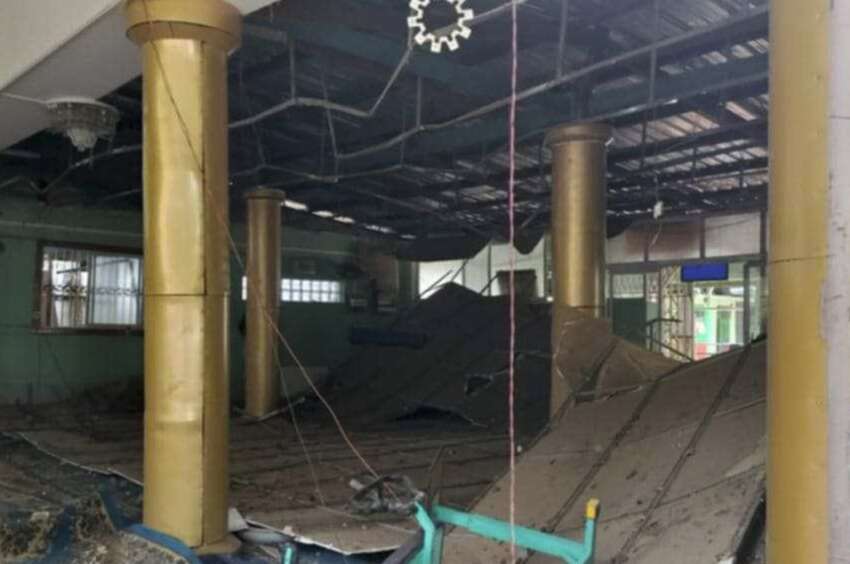
The military council has issued an order to remove the earthquake-damaged Guard Mosque in Sagaing City within three days, according to the Islamic community. The mosque, which was damaged by a 7.7 magnitude earthquake that struck on March 28, is adjacent to the Sagaing City Police Station and has a history spanning over 120 years. Both the mosque land and police station property were originally purchased and donated by Major Rahim Baksh, who received the British Indian Viceroy’s medal during the colonial period, as a single donation in 1902. The military council’s order for removal comes as the community was attempting to repair the mosque following the earthquake damage.
The Guard Mosque is located between Thupayun Road and the Resilience Office in Sagaing City, sharing a boundary with the city police station. Members of the Islamic community report that various military governments have previously attempted to seize the mosque land, but these attempts were resolved through proper documentation of land ownership. Since the military coup two years ago, there have been renewed attempts to seize the mosque property, which the community has defended with legal documentation. Now, following the earthquake damage, the District Police Chief, who disapproves of the mosque’s proximity to the police station, has issued a forceful order for its complete removal.
The March 28 earthquake resulted in damage to more than 50 mosques across major cities including Mandalay and Sagaing. While the military council has been actively leading the restoration of Buddhist temples, pagodas, and monasteries damaged by the earthquake, they have imposed strict restrictions on the reconstruction and demolition of mosques and Christian churches. These religious buildings can only be rebuilt or modified with explicit permission from the military council, and must maintain their original specifications. In practice, even obtaining permission for demolition is difficult, making reconstruction approval even more challenging. The process requires multiple levels of approval, starting from the township level, proceeding through district and state/regional governments, and ultimately requiring final approval from the Ministry of Religious Affairs and the military council itself.



